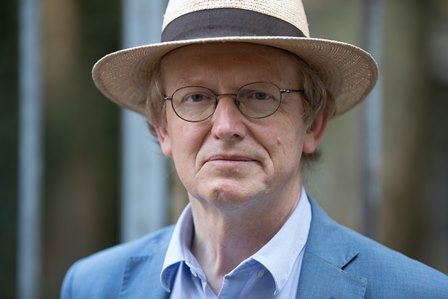The School of Languages and Cultures was delighted to welcome Professor Jef Verschueren (University of Antwerp, Belgium) to UQ this month as part of our 2018 Distinguished Visitor Program. During his visit, Professor Verschueren delivered a public lecture titled, The Role of Ideology in Public Discourse.
Abstract
Perhaps the most flattering thing one can say about human beings of the sapiens type is that they are meaning-making machines. This lecture will first dwell on the processes involved in turning a relatively under-differentiated blur of meaning-making potential into cognitively and perceptually differentiated categories and relations between categories about which, thanks to theory of mind, we can then communicate with the help of utterances in a human language which necessarily leave more implicit than what can be said explicitly. It will be argued that, once it has passed through the filter of language (an inevitable filter in all domains of social life) all human ‘reality’ is in fact ‘augmented reality’, and that, in the public sphere, augmented reality is not such a bad characterisation of ideology in its most general sense of the way in which, in a given community, the world is interpreted or of what is, in a given community, regarded as normal. Implications of this claim will be spelled out, and illustrations will be given of how the processes involved can be analysed.
Presenter
 Jef Verschueren received a Ph.D. in Linguistics from the University of California at Berkeley. After a long career as a researcher for the Flemish Fund for Scientific Research, and as Professor of Linguistics at the University of Antwerp, Belgium, where he served as Dean of the Faculty of Arts from 2001 to 2009, he is now Professor Emeritus. He is the founder and Secretary General of the International Pragmatics Association (IPrA).
Jef Verschueren received a Ph.D. in Linguistics from the University of California at Berkeley. After a long career as a researcher for the Flemish Fund for Scientific Research, and as Professor of Linguistics at the University of Antwerp, Belgium, where he served as Dean of the Faculty of Arts from 2001 to 2009, he is now Professor Emeritus. He is the founder and Secretary General of the International Pragmatics Association (IPrA).
Verschueren’s main interests are theory formation in linguistic pragmatics (conceived broadly as a cognitive, social, and cultural perspective on language and language use), intercultural and international communication, and language and ideology. Some recent publications include the annually updated Handbook of Pragmatics (Amsterdam/Philadelphia: John Benjamins; first published in 1995, co-edited with Jan-Ola Östman, now also available online), Debating Diversity: Analysing the Discourse of Tolerance(London: Routledge, 1998; co-authored with Jan Blommaert), Understanding Pragmatics (London: Edward Arnold / New York: Oxford University Press, 1999), Ideology in Language Use: Pragmatic Guidelines for Empirical Research (Cambridge University Press, 2012).



